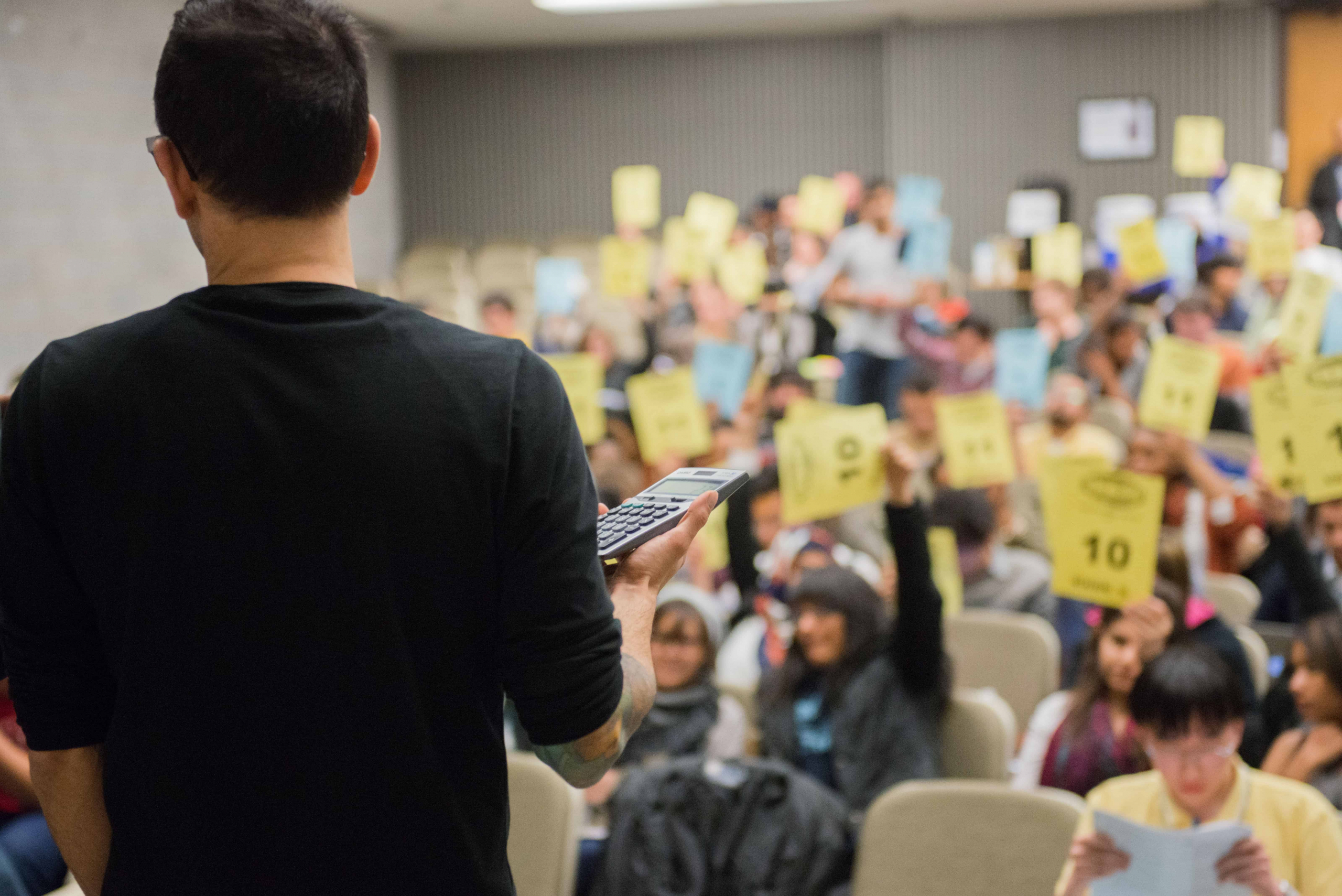The UTSU’s special general meeting was adjourned late Tuesday night without a clear resolution on five agenda items, including the closely watched question of whether to implement a proposal for electoral reform.
Following a motion introduced originally by Engineering Society president Rishi Maharaj, the Special General Meeting will resume next week.
The meeting, which stretched to nearly four and a half hours, managed to churn through nearly three-quarters of a lengthy agenda, stopping moments before a climactic vote on the Non-Partisan Declaration on UTSU Electoral Reform.
Members voted to oppose unpaid internships, remove Styrofoam food containers from campus, establish an anti-war coalition, condemn the website “A Voice For Men,” endorse the Idle No More movement, reduce the required nominations for UTSU executive candidacy, and lobby for changes to student representation on newly-formed campus councils.
“At the end of the day no one can say their concerns weren’t heard,” said UTSU president Shaun Shepherd. “We had a respectful debate on the issues and that’s good for everyone.”
One motion, to reduce the number of proxies permitted per person at general meetings to five, from 10 failed.
Quorum, the minimum number of voters required to proceed with the meeting, was lost just before a final vote on electoral reform. Attempts to regain quorum during a recess were unsuccessful, after a large contingent of voters from the University of Toronto Mississauga campus left for the final bus home.
“No one expected the meeting to go on this long,” said Munib Sajjad, UTSU vice-president, university affairs and a former UTMSU executive. A specially chartered bus to Mississauga was scheduled to leave at 9.30 pm, and members were still debating electoral reforms as the meeting entered its fourth hour at 10.00 pm. The bus left at 10.02 pm.
Instead, the remaining students voted to re-convene in one week. The motion requiring the union to re-convene the meeting was originally introduced by Maharaj and then re-introduced by University College Literary and Athletic Society (UCLit) president Benjamin Dionne after a second count of those inside and outside the room showed the meeting had not re-acquired quorum. The motion to adjourn to next week was approved by the remaining students despite scheduling concerns expressed by some UTSU executives.
The meeting will resume next Tuesday at 6.00 pm, at the exact point it left off: with an immediate up-or-down vote on whether to implement online voting and consider a host of other changes, barring a motion to extend debate, according to meeting chair Ashkon Hashemi.
“I want to be clear: this is a continuation of tonight’s meeting. There will be no additional proxy collection. There will be no additional [agenda] items,” said Hashemi at the meeting.
The meeting’s conclusion, without a vote on electoral reform, frustrated college leaders who have authored and backed the proposal since this fall.
“We had a clear majority in favour of electoral reform in the room, and we were seconds away from achieving the vote,” said Sam Greene, head of college at Trinity.
Greene suggested that, while “some people legitimately needed to leave,” others “left out of a desire to shut down debate and that is unacceptable.” Dionne said the proposal had been “filibustered.” Both college heads agreed the discussion of electoral reform should have occurred far earlier in the night.
A number of motions were far less controversial, and passed early in the night with broad support and minimal discussion. These included all of the items in old business from the November annual general meeting, including the passage of the audited financial statements for 2011–2012, as well as motions to examine winter residence fees, create a clubs box office, extend AGM notice and deadline requirements, and lobby for international student representation on Governing Council.
Even with electoral reform at the top of the agenda next week, it was unclear whether the reforms, first proposed this fall, can be approved and implemented before elections begin later in February.
The Elections & Referenda Committee is scheduled to meet this Thursday.
“This was supposed to be the meeting where we finalized the election rules,” said Ella Henry, UTSU Director for the Faculty of Law, and a member of the committee.
Shepherd confirmed that amendments to the electoral rules could take place up until Thursday, February 14, when the nomination period opens.
“In order to host a fair election, changes would have to occur before the start time of the election,” he said.
That would leave slightly more than 24 hours between the end of the continued meeting to be held on the evening of February 12 and the opening of the nomination period on the morning of February 14.
Asked about his previous commitment to ensure that electoral reform happens in time for elections this year, Shepherd was unequivocal: “That commitment still stands.”


